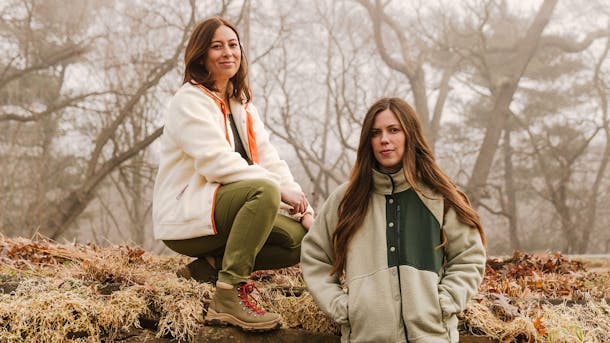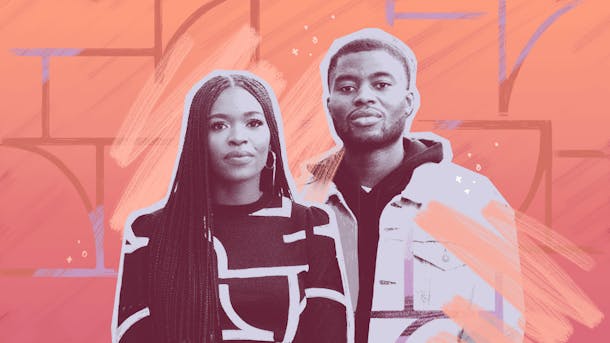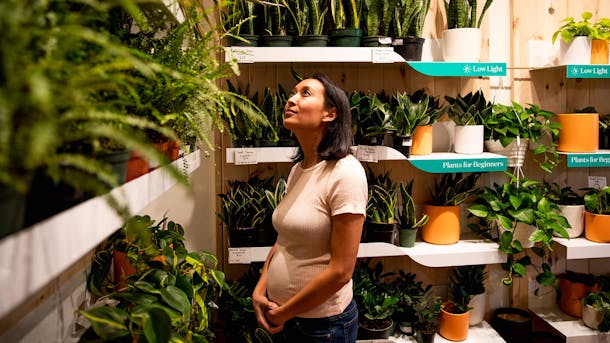
Feature Story
For these founders, great ideas came from the great outdoors
In this series of short stories, we unearth how being out in nature resulted in “aha!” moments for the founders of five businesses that help others enjoy and explore the world around them.
The Big Sur coastline where the waves creep inward, then curl, then crash. The blisteringly cold English coves frequented by courageous surfers in mid-winter. The winding trails that lead through dense Pacific Northwest forests, damp with rain. No matter where you go, when, or why, there’s truly nothing like being in the great outdoors.
For the founders of GoCamp, Finisterre, Hipcamp, Morrison Outdoors, and Black Folks Camp Too, these locations aren’t just places of enjoyment, relaxation, and rejuvenation, though — they’re also sources of entrepreneurial inspiration.
Join us for an outdoor-themed adventure as we unearth how being out in nature resulted in “aha!” moments for the founders of five businesses that help others enjoy and explore the world around them.
Deborah Kane, GoCamp
Driving out of Portland — a city famous for its alternative, colorful inhabitants — you soon realize that outdoor Oregon is as vibrant and wonderful as the city itself. Helping people hit the road and take it all in is the mission that inspired Deborah Kane to found GoCamp, and there’s no sign that her business — which offers a highly-curated selection of fully-equipped, rentable camper vans — will be hitting the brakes any time soon.
Portland hasn’t always been Deborah’s home; she grew up on the other side of the States — in Virginia, to be exact — where she spent many hours in her family’s station wagon heading to East Coast camping destinations and outdoor adventures. When she grew up and started her own family, these traditions continued.
“Cross-country skiing, hiking, backpacking, camping — they all played a big part in my and my husband’s courtship and early marriage,” Deborah said. And when the couple had kids, they bought a Volkswagen Westfalia — aka a “Westie” — to take impromptu, hassle-free trips together. “On a whim, we could just say to our five-year-old and seven-year-old, ‘You two want to go camping this weekend?’ We would literally just hop in the van and go!”
On top of raising a family and getting outside at every opportunity, Deborah was growing her career in food and agricultural policy; by 2012, she was working for the Obama administration. “I was tasked with helping get good food into public school systems all across the United States, specifically helping schools purchase products from farmers in their area,” she said. “I was doing this work on the national stage and representing the United States Department of Agriculture at conferences all across the country. I was constantly giving speeches to school districts or giving speeches to policymakers.”
In 2016, Deborah knew that, regardless of the outcome of the presidential election, she’d be out of a job — as all political appointees would be. As she tendered her resignation, she realized she wanted to be outdoors a whole lot more in her next chapter, albeit without having to board an airplane to reach her destination. “So, I went on a camping trip in my van. And it's pretty easy when you're on a camping trip and you’re staring up at the starry sky to convince yourself that the only thing you could do next — that would have any meaning, or give you any joy — would be to launch a camper van rental company,” she said with wry humor.



It's pretty easy when you're on a camping trip, and you’re staring up at the starry sky, to convince yourself that the only thing you could do next that would have any meaning, or give you any joy — would be to launch a camper van rental company.
Deborah already had an inkling people were interested in vans. The family has a basement apartment below their house that they rent out via Airbnb, and guests would often peek inside the family’s camper parked in their driveway and ask to get a better look. After doing research and discovering there was a definite gap in the market — sure, camper vans could be rented, but not the kind wanderlust sufferers hankered for — Deborah doubled-down on her idea. “I was pretty sure I was onto something — it was the kind of service that I would want.”
Thanks to Squarespace and an easy-to-install reservation plugin, both of which helped lower the barrier and cost to enter the marketplace, Deborah was able to get GoCamp live quickly. But, she also needed vans — and interesting, non-generic ones at that. “I got on my bike and rode around the neighborhoods of Portland. Every time I saw a Westie or a Eurovan, I would put a postcard on the windshield saying, ‘Hey, your van would look great on the GoCamp website — call me to learn more.’ And by the end of that first season, we had 15 vans on the website,” she said.
GoCamp was an instant success for both van owners and renters. “We launched in April 2017. By September that year, every single van owner on GoCamp had made what they paid for their van,” said Deborah. “Some vans were even booked all summer long. After just six months, we knew we were onto something special.”
GoCamp’s quick success enabled them to scale and also operate across San Francisco, San Diego, LA, Seattle, and Denver. Their growth caught the attention of Storyteller Overland — the manufacturer of MODE adventure vans and an outdoor lifestyle brand — who purchased GoCamp at the end of 2021. Deborah remained CEO and founder up until April 2022, when Camila Ramirez was named as the company’s new CEO. The pivot has enabled Deborah to stay in her role as founder while also being able to turn her attention to new growth strategies and initiatives for GoCamp.
With Storyteller Overland’s resources, their wholehearted belief in GoCamp’s potential, and two teams instead of only one, the aim for the rest of 2022 is to keep expanding GoCamp nationally. Considering their trajectory — and the urge many of us have to jump in a van, drive off to some magical location, and camp under the moonlight — who’s to say such a feat isn’t possible?

Tom Kay, Finisterre
“Humber, Thames, Dover. South or southwest 3 or 4, increasing 5 at times. Showers, thundery for a time in Humber, becoming fair later. Good, occasionally moderate.” For those who haven’t lived in Britain, these disparate words and numbers may sound cryptic. But for many who have, the BBC’s shipping forecast — broadcast via radio four times a day so folks at sea can stay up to date on nearby wind speeds, weather, and visibility conditions — is iconic.
Tom Kay, the founder of outdoor clothing brand Finisterre, has fond memories of the shipping forecast. “It was and is something that’s really important to me, especially growing up. In my parents’ car, I remember the romantic way the forecast was read, hearing about weather conditions miles off at sea while I was safe and warm. But the shipping forecast is there to save lives; so fishermen and trawlermen are aware of storms.”
Although Tom didn’t grow up to be a fisherman, he did spend quite a lot of time in Britain’s cold, biting waters: When everyone else his age was getting into music, film, or football, Tom was out surfing. In his twenties, his love for surfing inspired a move from his coastal home county of Norfolk to Cornwall, the epicenter of British surfing. Specifically, Tom landed in St. Agnes, a large village on the north coast of Cornwall, an ideal spot for being out on the water as it produces medium- to large-sized swells.
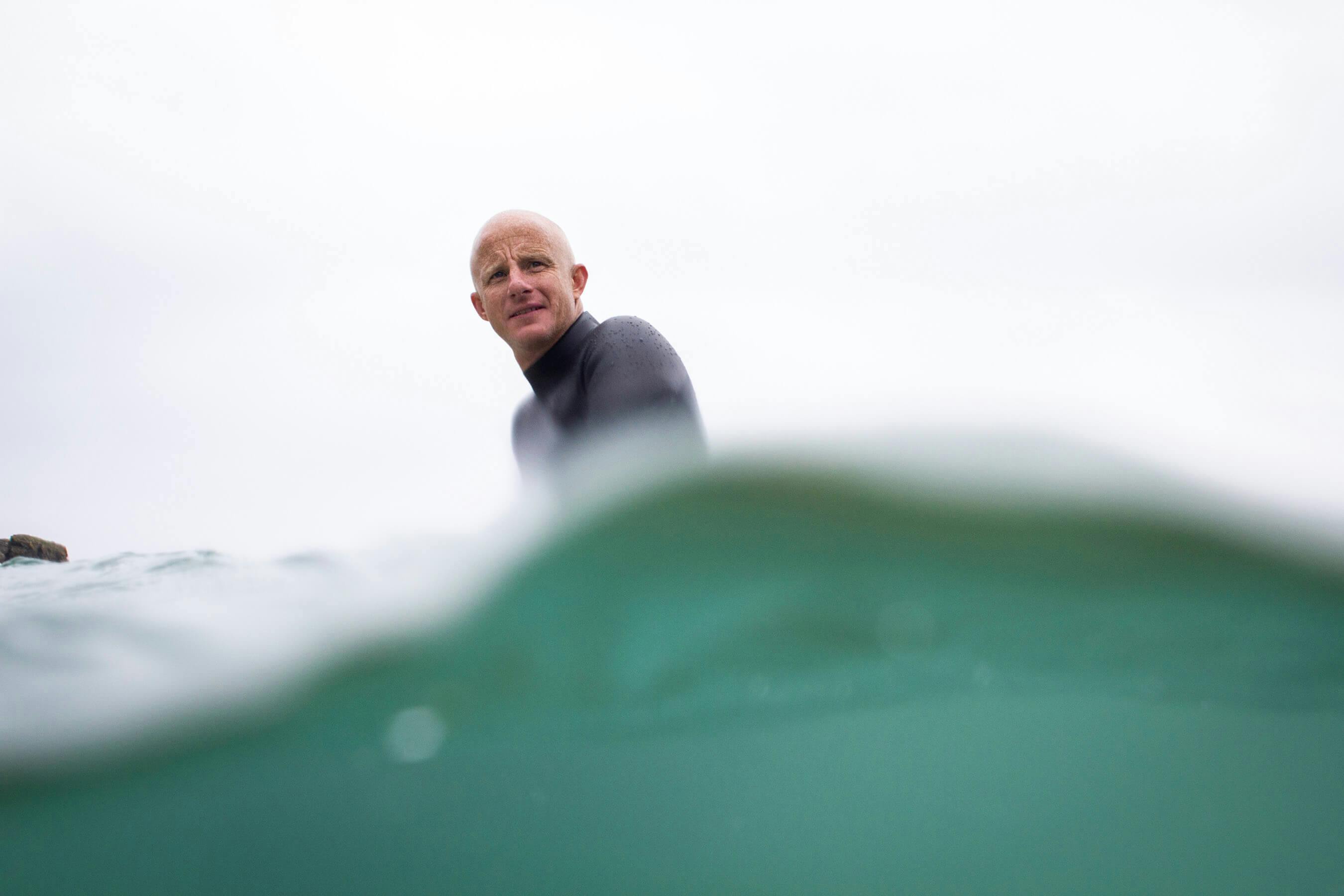
It was in St. Agnes — where Tom lived, worked as a chartered surveyor and lifeguard, and surfed — that he realized there was a gap in the products offered to cold-water surfers. “A lot of the bigger surf brands were selling products that weren’t relevant to me on these shores; in the middle of February, it’s freezing cold, it’s windy, it’s rainy. But if you opened up the first four pages of a surf magazine, it’d just be board shorts and flip flops,” he said.
Inspired by the British coast, his own experiences as a surfer, and his observation of a ready market, Tom decided to launch his own brand to produce functional, sustainable, and high-quality surfing and outdoor gear for all seasons. The brand’s name, Finisterre, harkens back to his childhood love for those cryptic and romantic BBC broadcasts — Finisterre is a former shipping forecast area, and it means “end of the earth.”
In 2003, Tom launched Finisterre from his shared, rented flat. He built a three-page website for the brand (which was far harder than it is now — “with a dial-up modem, I had to ask my flatmates to get off the phone to use the internet,” he recalled). With ecommerce virtually non-existent in those early days, he sold his signature product — an innovative fleece pullover that’d keep folks warm, even in the wettest, windiest of conditions — at trade shows instead. Finisterre’s early products became an immediate hit, and the sales enabled the brand to move out of Tom’s rented flat into a purpose-built space.
In 2005, Finisterre relocated to a space in St. Agnes called Wheal Kitty Workshops, which has been their headquarters since. Being beside the ocean — rather than operating out of some far away, gray office — is crucial for the brand, Tom says. “Being here is good — you can walk out and see the sea. It’s a great way for the products to be tested out in the elements.”

It’s always been about making the best product, doing the right thing, and having the conviction there was room for a brand like Finisterre.
Nearly 20 years since Finisterre’s inception, and with retail stores dotted around Britain, the brand has grown significantly. But for Tom, the goal was never to scale for scaling’s sake — nor was it about amassing profit. Instead, it was about providing practical products that meet the needs of outdoor lovers like him and making a positive impact on the planet and its people along the way.
Today, as a B Corp, that means committing to practices like using eco-friendly materials and working with values-aligned manufacturers. As Tom said, “It’s always been about making the best product, doing the right thing, and having the conviction there was room for a brand like Finisterre. But even now, there’s so much more to do — for the business, for our products, for effecting change. We’re still very much on that journey. It’s exciting.”
Right now, on some wild ocean, a captain is tuning into the shipping forecast. On the coast, somebody is putting on their Finisterre wetsuit, ready to surf. And in Cornwall, at Wheal Kitty Workshops, Tom and the Finisterre team are dreaming up even more ways to serve their customers — those who crave being outdoors in every season.

Alyssa Ravasio, Hipcamp
Tom Kay isn’t the only founder whose passion for surfing and the outdoors led him to his life-changing moment of inspiration. The same can be said for Alyssa Ravasio, the California-based founder and CEO of Hipcamp — a marketplace and resource for unique outdoor stays.
A love for the outdoors was fostered early on in Alyssa’s childhood. Family camping trips would frequently take her to Hendy Woods State Park in California’s Mendocino County, which is home to around 800 acres of flora and fauna — including 80 acres of ancient, old-growth redwoods. “Some of my favorite early memories were spending time at the state park, catching lizards, snakes, and toads,” said Alyssa. “I loved camping so much that, when I came home, I’d continue using my sleeping bag in bed and keep all my windows open.”
After high school, Alyssa went on to study digital media at UCLA and at Universitat Pompeu Fabra in Barcelona before embarking on a varied career spanning sales, marketing, and operations. But in 2012, she was let go from a startup she helped build. The sudden change prompted Alyssa to take some much-needed time away from the professional world so she could properly figure out her next steps. “I had this very clear realization that I needed to start my own thing. So I was taking a break, traveling, surfing a lot, and getting outside as much as I could,” she said.
On New Year’s Day in 2013, Alyssa headed out on a camping trip to Big Sur, a region of the northern California coast famous for its breathtaking beauty, where steep mountainscapes careen down to meet the Pacific below. But when she arrived, she was taken aback. “I discovered that this camp on the coast was home to incredible surf — and none of my hours of research had managed to surface that fact,” she said. It also meant she hadn’t brought her surfboard along. “I spent a lot of time wondering if it’d be weird to ask someone to borrow their board,” she added.
On the drive home to San Francisco, Alyssa couldn’t stop thinking about an idea for a new venture: a Yelp for the outdoors, allowing folks to review and learn the nitty-gritty details about outdoor campsites and destinations across the U.S. Things quickly began to crystallize.
Alyssa attended a coding bootcamp to get Hipcamp up and running. But uncertainty hit hard: “When I started building it, I became pretty riddled with self-doubt. In fact, after a few months, I was genuinely considering giving up.” The site went live in June 2013, and despite broadening Hipcamp’s scope to allow people to book campground stays directly, Alyssa was unsure about the venture’s future.
“Right as I reached a breaking point, a very cool artist from nearby Oakland booked a campsite. I instantly looked her up on Facebook and was thrilled to see we had no friends in common — it wasn’t a pity booking. That first booking gave me all the validation I needed for many more months of otherwise rewardless work,” she said. Reminded of Hipcamp’s mission and the value it could provide, Alyssa delved back into her work with gusto.
Despite her anxieties, Alyssa pushed through doubt to keep growing the business. She made the decision to expand the company’s scope by working with private landowners, which allowed adventure seekers to tap into unique outside stays — from cozy glampsites to rustic cabins, kitted-out RV parks to quirky campsites (all in addition to public campgrounds, too).
Since June 2013, Hipcamp has helped outdoor enthusiasts enjoy more than 6 million nights under the stars — the same stars that Alyssa camped under as a kid which inspired her love of the outdoors.
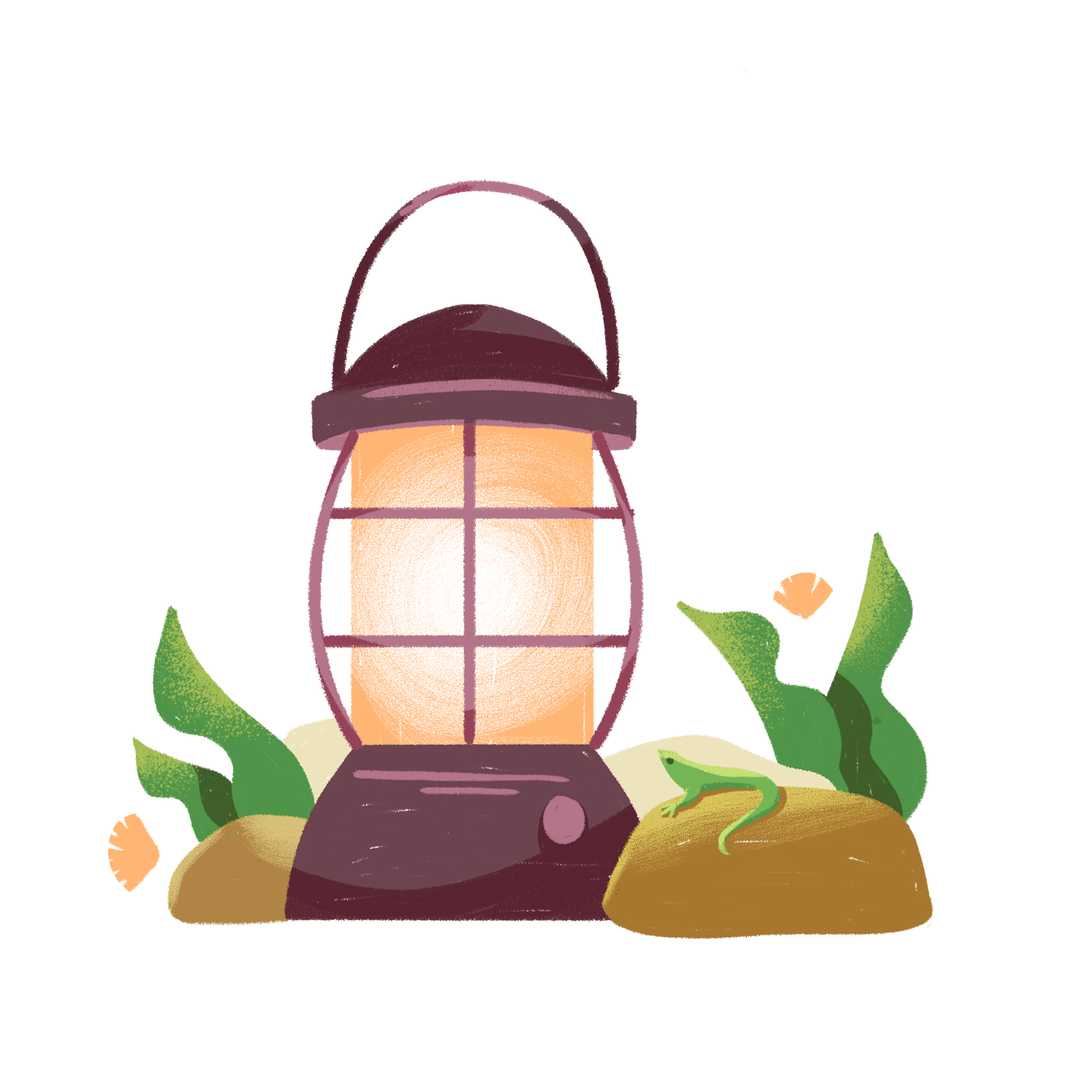
Tavis Malcolm, Morrison Outdoors
With its intense blue skies, rugged mountainscapes, and legendary white water, Colorado is synonymous with adventure and outdoor activity; it’s a mecca for nature lovers and adrenaline junkies alike.
In 2018, Tavis Malcolm, the founder of Morrison Outdoors, was living in Englewood, just outside of Denver. Like many of his fellow Coloradans, Tavis spent a lot of time out in nature. “I've been camping and hiking outdoors for most of my life. I was in Boy Scouts and Search and Rescue growing up and have always camped with friends as an adult,” he said. Sharing the joys of the outdoors — and camping in particular — with his newborn son, Morrison, was something Tavis wanted to do from the get-go. When Morrison was just 10 weeks old, Tavis and his wife, Amber, took Morrison on his very first tent camping trip to nearby Grand Lake.
A two-hour drive from Englewood, the deep, natural lake, pine forests, and mountains that surround the town of Grand Lake make it an ideal spot to camp, but the climate can make for chilly nights. It was the cold that worried Tavis and Amber on that first trip with Morrison.
Despite safely swaddling the infant in pajamas, a snowsuit, and fleece blankets, Tavis said, “All of us were up several times in the night. The layers made it difficult to access his diaper for a change and we still weren't fully convinced that he was actually warm enough.” The next morning, Tavis had his “aha!” moment: a sleep sack, designed as a coat with arms on the upper half and a sleeping bag on the lower portion, that could offer infants and parents a much safer, cozier, and more convenient camping experience.
After the trip, compelled by his ambition to launch a kids’ sleeping bag business and make a go of it, Tavis resigned from his day job as a marketing director for a Denver-based political agency. He then transformed his garage into a makeshift atelier and got to work turning his idea into a viable product and business.
“To get started, I traced one of Morrison's existing sleep sacks onto some down throw blankets I got at Costco, got out my sewing machine, and did a quick prototype,” he said. After a few tweaks to his initial design, Tavis had created a comfortable, portable, lightweight, and — most importantly — safe and warm sleeping bag, perfect for a baby.
While iterating on the sleeping bag, Tavis listed the product on Etsy to gauge consumer interest — but none sold. He pivoted to Kickstarter instead, where the couple invested $2,000 in savings to bolster the campaign’s marketing. When the campaign launched and fell short of its first-day sales target — the first 48 hours of a Kickstarter campaign is said to be crucial for overall success — Tavis’ hopes were dashed.
But, as they later learned, some early failure doesn’t mean you’re down for the count. Local media coverage by BusinessDen, a Denver business news site, and their local CBS station generated interest in the product, helping to ramp up the campaign.
On the campaign’s final day — Morrison’s first birthday, no less — the family had secured $16,000 in pre-order sales, $6,000 more than their initial target. To boot, they garnered the attention of REI’s kids’ buyer, who placed an order several times larger than their Kickstarter sales.

Now, in 2022 — three years since the campaign ended — Morrison Outdoors has shipped more than 15,000 sleeping bags for kids ages 6 months to 4 years old, won awards from sites like GearJunkie and Outdoor Life, and had their stock sold in more than 150 REI stores. Additionally, alongside their growth, Morrison Outdoors has committed to giving back and having a positive world impact by joining the Pledge 1% movement.
Although the family and Morrison Outdoors are no longer based in Colorado, the Malcolms can be found camping and working in another intensely beautiful state renowned for outdoor recreation: Washington. And it’s hard not to wonder what the Evergreen State will inspire them to do next.
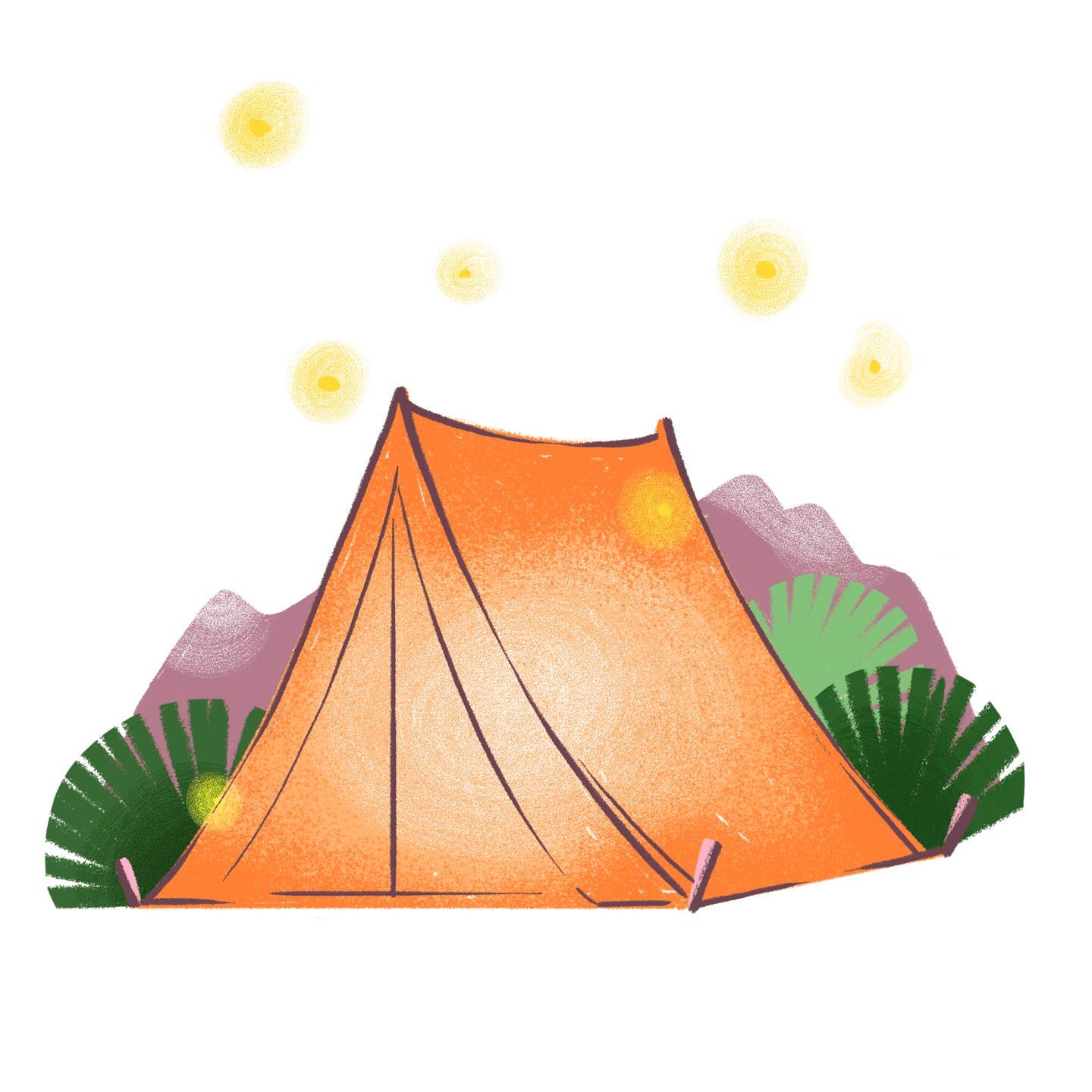
Earl B. Hunter, Jr., Black Folks Camp Too
“I want my business to go out of business,” Earl B. Hunter, Jr. told us. Yes, you read that right. The founder and president of Black Folks Camp Too would be thrilled if the services and products his business provides to close the outdoor diversity and inclusion gap were no longer necessary. And he’s working hard to make that happen, one campfire at a time.
To understand more about Earl’s goal, it’s helpful to understand his origin story. He grew up in the Hollywood Hills area of Columbia, South Carolina — a neighborhood he previously said most kids don’t make it out of — and attended Georgia Military College. He later studied communications and political science at Appalachian State University while on an athletic scholarship, before taking on high-ranking sales positions at companies like Nokia and Sylvansport. It was his time at Sylvansport — a trusted manufacturer of camping gear and trailers — that ignited his passion for the outdoors.
What truly fanned the fire, though, was a cross-country camping trip Earl took with his son in the summer of 2017. Traversing from North Carolina to British Columbia and the many states around and in between, the pair had a fantastic time exploring nature and even getting to see Mount Rushmore up close. But what they didn’t see during their epic trip were people who looked like them.
“We hadn’t seen any Black folks — apart from one family at an RV park in Albuquerque, New Mexico,” Earl said. Meeting the family on that hot, summer night in New Mexico led to a moment Earl will never forget — not least because the families’ conversations helped provide the catalyst for Black Folks Camp Too. “The mother of the family challenged me, ‘Why don’t you change things?’ And I said, ‘Alright.’” For Earl, an idea that would change his life — and would change the lives of many others, too — was born.
In 2019, after resigning from his executive role at Sylvansport, Earl dedicated his full-time efforts to launching and establishing Black Folks Camp Too (BFCT). From the outset, BFCT’s goal was to remove fear, add knowledge, and invite more Black families into the outdoors. They also aimed to remove barriers and help the broader outdoor industry become more aware of the reasons behind Black folks’ generational fear of the outdoors; the outdoors, and especially the woods, can be associated with anti-Black violence and trauma.
“There’s the knowledge stuck in our heads that you don’t go out in the outdoors, particularly in the South,” Earl said. There’s also the fact that, up until 1964 with the introduction of The Civil Rights Act of 1964, national parks — open spaces which should be accessible to everybody — were segregated. “Even if my great-grandmother wanted to go out, she wouldn’t have been able to.”
But how is BFCT helping Black folks get outside and find joy in nature? Well, they’re taking a multifaceted, marketing-driven approach. Firstly, Earl is focused on educating the outdoor industry, from major retail companies to RV dealerships to state parks, on how they can take part in removing fear and barriers Black families face when exploring the outdoors.
Secondly, he’s created what’s known as the Unity Blaze — a campfire logo in the colors of red, white, and black that, when on a flag in an RV park, for instance, lets Black campers know they’re safe and welcome in that area. Thirdly, the BFCT team is working with retail companies, like the outdoor footwear brand Oboz, to create and sell products with the Unity Blaze logo — as well as selling BFCT’s own line of apparel and branded items. The profit from the products helps sustain the company, and means BFCT can continue their necessary work in a self-reliant way.
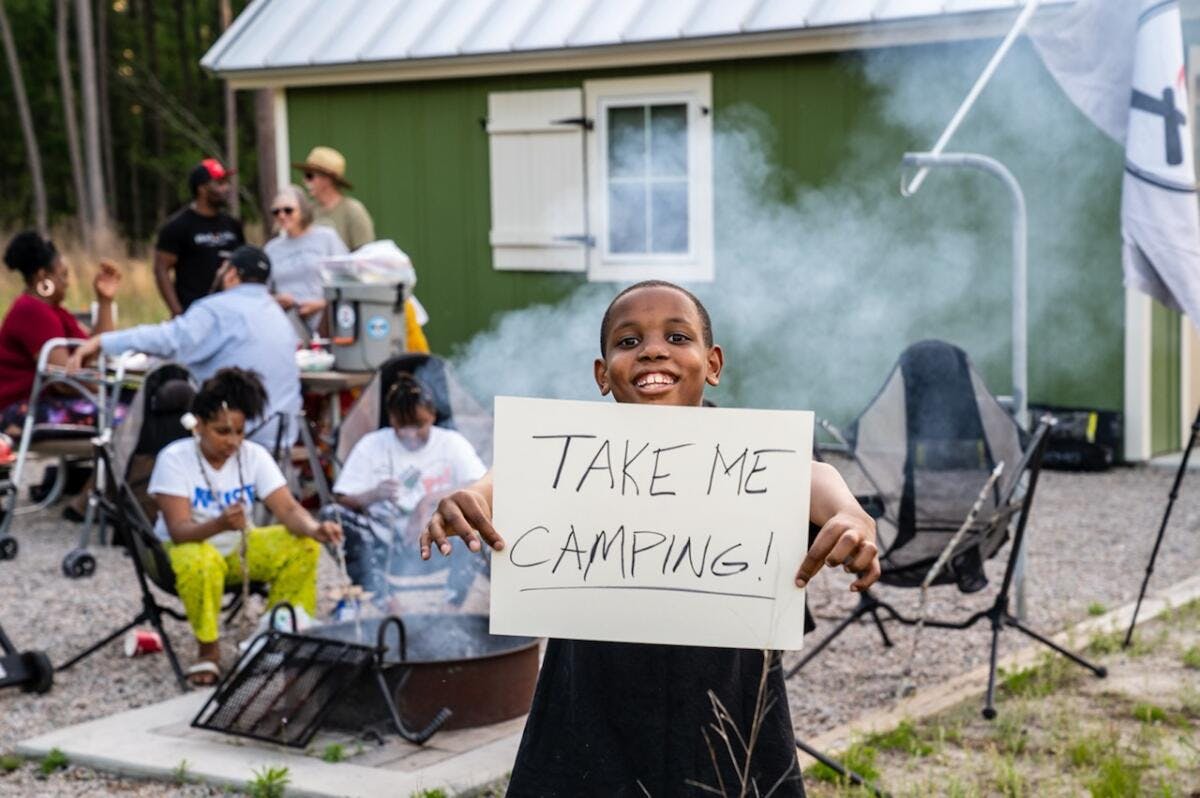
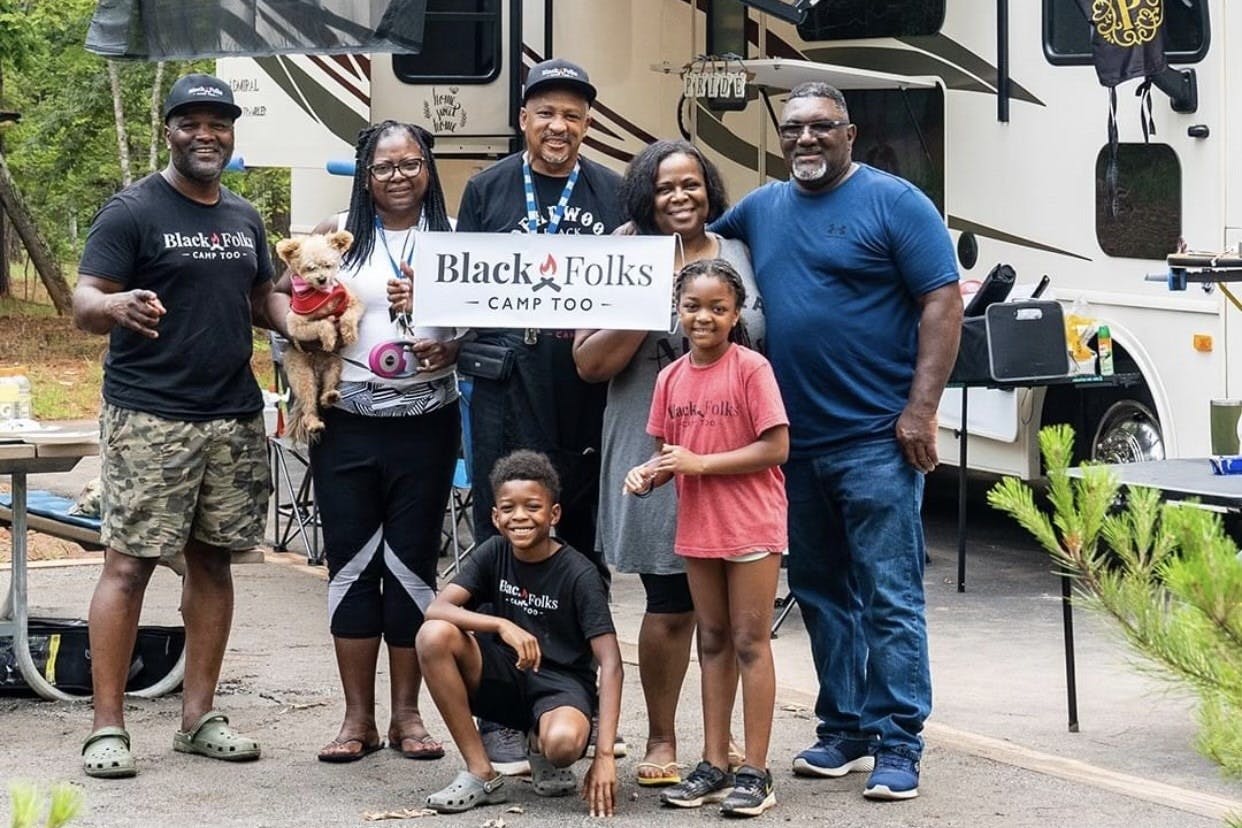

There have been many memorable moments in BFCT’s journey thus far — but for Earl, one stands out. The company invited a group of people — a mix of first-timers with a few experts — out camping. (The group wasn’t composed solely of Black people: “It’s ‘Black Folks Camp Too’, and ‘too’ means also,” Earl said.)
Rudy Currence, a Grammy Award-winning producer and singer-songwriter, was there alongside his mother, both of whom were camping for the first time. As Earl lit the campfire, Rudy’s mother told him, “Earl, I have never seen a campfire lit in the woods in my life — and never have I wanted to. I was told that wasn’t for me. But to see you do that, it was magnificent.” For Earl, this moment encapsulated so much of what he’s trying to achieve with BFCT.
From the very beginning of his conversation with In the Works, the passion Earl had for his mission was palpable. And when Earl sang a few lines from A Change Is Gonna Come, Sam Cooke’s song that became an anthem for the Civil Rights Movement, the fire that burned within him — and the flame he aims to share — shone that much brighter:
“It's been a long, a long time coming; but I know a change gonna come, oh, yes it will.”


